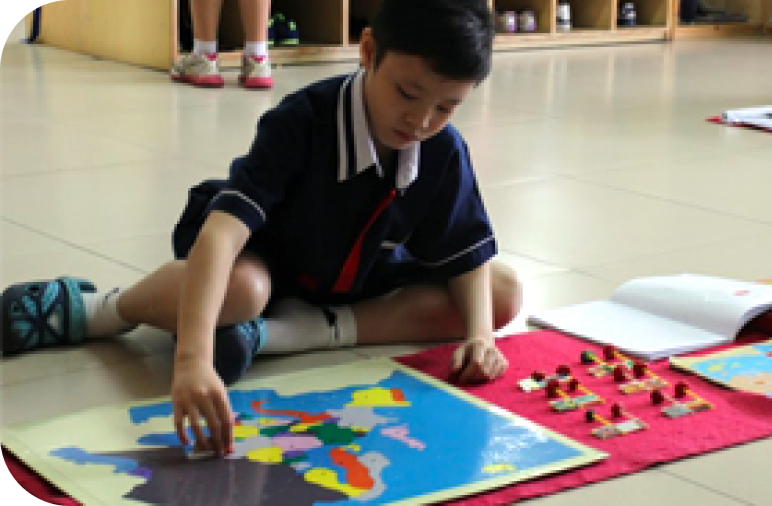Elementary Program
As Montessori teachers, we realize that when children are given the ability to learn about what interests them, they are more actively engaged and cognizant of their own learning.
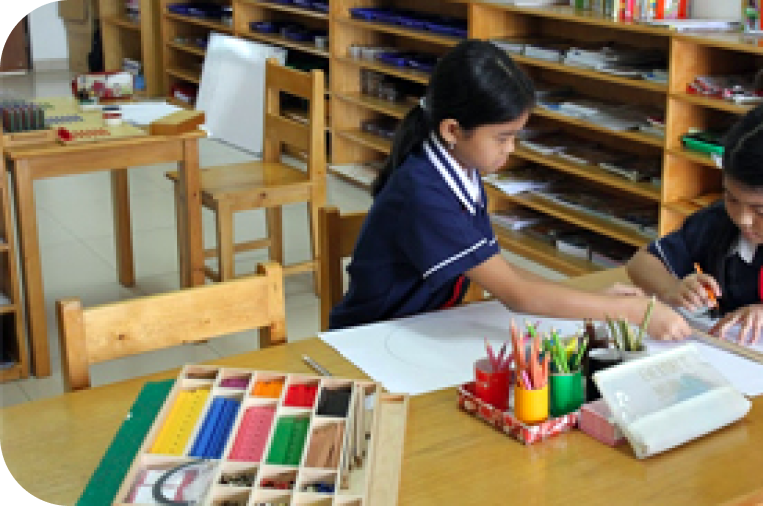
Intellectual Development
The elementary school child occupies what Maria Montessori called the “second plane of development”. Children at this stage are in a period of rapid intellectual growth as they develop the ability for rational thinking. Children want to know the how and why of things. Through exploration and experimentation, they discover the quantities and facts of the world. Self-education is the method through which the elementary children learn most effectively. The teacher’s role is to provide and support children in their learning journeys.
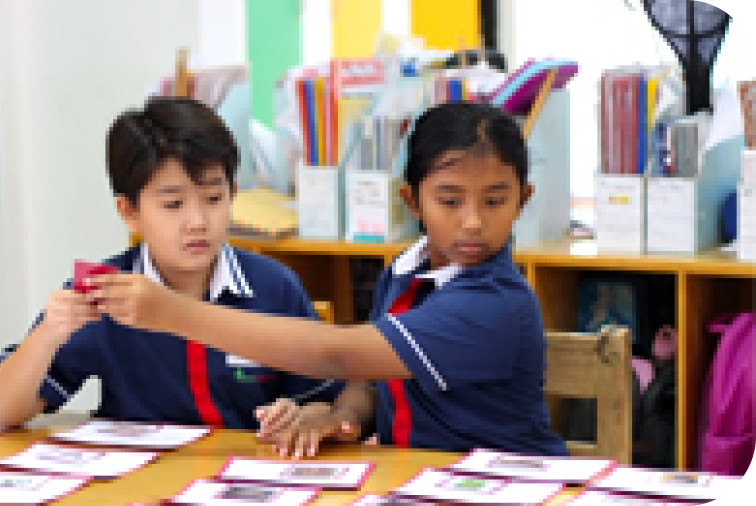
Cosmic Curriculum
Dr. Montessori developed what she called the “cosmic curriculum” for this educational level. In the cosmic curriculum, children discover the history of the world and of the human race, and in this process, begin to define their own place in the life of human kind and of nature. Sequentially, all things are naturally related to the creation of the universe and our earth. We encourage children to begin asking questions. Children pursue and research historical, scientific, artistic, and cultural interests. Information is gleaned from a rich variety of literature, experiments, art projects, tapes, films and community field trips.
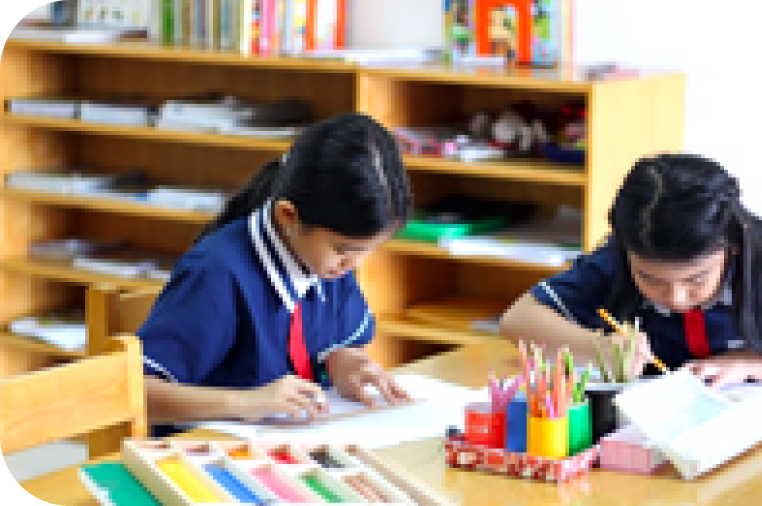
Elementary Studies
During the elementary years, children explore the academic world in increasing depth through the related disciplines of mathematics, language arts, research methods, art, music, theater health science, botany, zoology, astronomy, ecology, matter, energy, history, cultural/physical geography, and physical education; all is taught as parts and contributions to the whole. Multi-age classrooms and a spirit of cooperation rather than competition, allow children to grow emotionally and intellectually at their own pace.
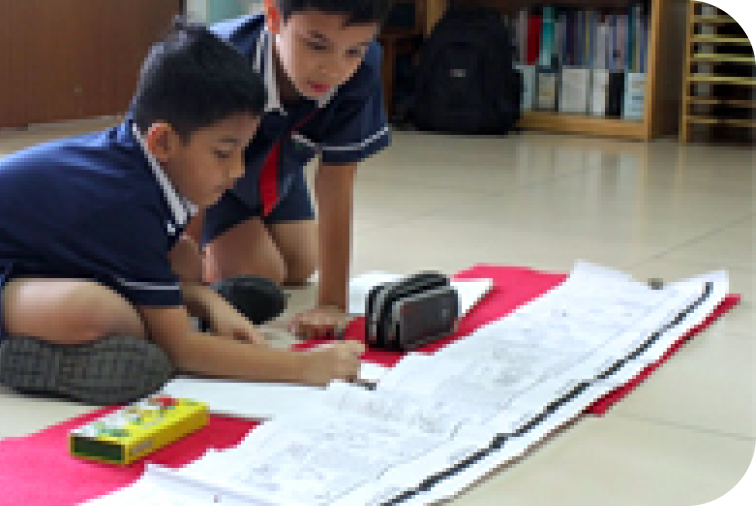
Individualized Learning
The Montessori elementary programs offer individualized instruction and evaluation. Students are grouped in a multi-age setting, ages 6-9 or 9-12, to allow for cognitive development without competition. Teachers evaluate the students work in an on-going basis and meet twice annually, December and June, for a progress report with the parents. Parent-teacher conferences detail the progress of the student in each subject area, as well as noting social and emotional growth. In November & May students take a semester, standardized achievement test.
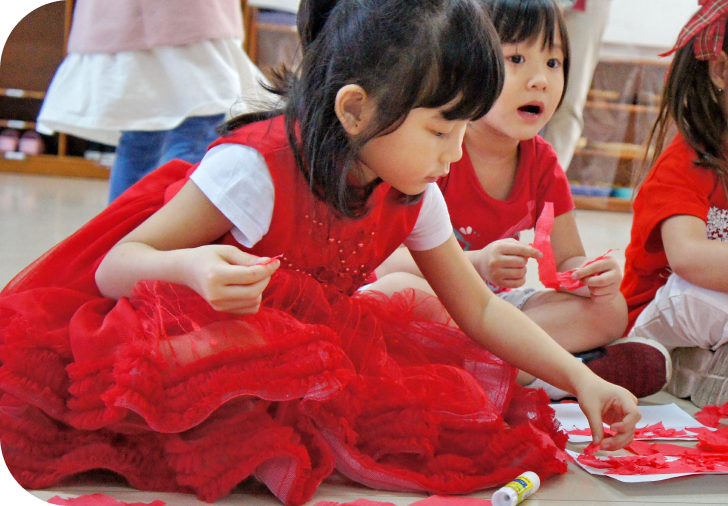
Beyond Palm Trees
At the end of the Montessori elementary program, your 12 year old is ready for a very important transition: becoming an adolescent. Their elementary years have given them the freedom to develop as a unique individual. They have experienced the challenges and rewards of working with groups of children of different ages and have seen their skills and talents put to use in many group projects. They have developed proficiency in all areas of academic endeavors and look forward to the new opportunities beyond Montessori elementary. They love and trust the adults they work with. Above all, they are flexible and adaptable to the environments they find themselves in.

Academic Progress
The Montessori elementary programs offer individualized instruction and evaluation. Students are grouped in a multi-age setting, ages 6-9 or 9-12, to allow for cognitive development without competition. Teachers evaluate the students work in an on-going basis and meet twice annually, December and June, for a progress report with the parents. Parent-teacher conferences detail the progress of the student in each subject area, as well as noting social and emotional growth. In November & May students take a semester, standardized achievement test.
